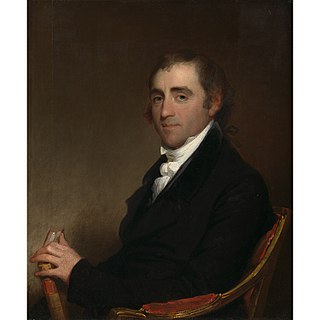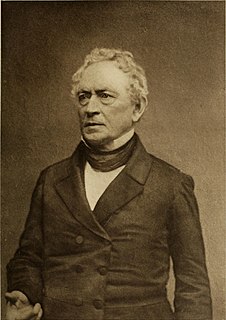A Quote by Abraham Lincoln
A majority held in restraint by constitutional checks and limitations, and always changing easily with deliberate changes of popular opinions and sentiments, is the only true sovereign of a free people. Whoever rejects it does of necessity fly to anarchy or to despotism. Unanimity is impossible. The rule of a minority, as a permanent arrangement, is wholly inadmissible; so that, rejecting the majority principle, anarchy or despotism in some form is all that is left.
Quote Topics
Always
Anarchy
Arrangement
Changes
Changing
Checks
Constitutional
Deliberate
Despotism
Does
Easily
Fly
Form
Free
Free People
Held
Impossible
Left
Limitations
Majority
Minority
Necessity
Only
Opinions
People
Permanent
Popular
Popular Opinion
Principle
Rejecting
Rejects
Restraint
Rule
Sentiments
Some
Sovereign
True
Unanimity
Whoever
Wholly
Related Quotes
[O]ur sages in the great [constitutional] convention... intended our government should be a republic which differs more widely from a democracy than a democracy from a despotism. The rigours of a despotism often... oppress only a few, but it is the very essence and nature of a democracy, for a faction claiming to oppress a minority, and that minority the chief owners of the property and truest lovers of their country.
[F]or avoiding the extremes of despotism or anarchy . . . the only ground of hope must be on the morals of the people. I believe that religion is the only solid base of morals and that morals are the only possible support of free governments. [T]herefore education should teach the precepts of religion and the duties of man towards God.
Beneath a free government there is nothing but the intelligence of the people to keep the people's peace. Order must be preserved, not by a military police or regiments of horse-guards, but by the spontaneous concert of a well-informed population, resolved that the rights which have been rescued from despotism shall not be subverted by anarchy.
Free institutions are not the property of any majority. They do not confer upon majorities unlimited powers. The rights of the majority are limited rights. They are limited not only by the constitutional guarantees but by the moral principle implied in those guarantees. That principle is that men may not use the facilities of liberty to impair them. No man may invoke a right in order to destroy it.
The principle of majority rule is the mildest form in which the force of numbers can be exercised. It is a pacific substitute for civil war in which the opposing armies are counted and the victory is awarded to the larger before any blood is shed. Except in the sacred tests of democracy and in the incantations of the orators, we hardly take the trouble to pretend that the rule of the majority is not at bottom a rule of force.






























